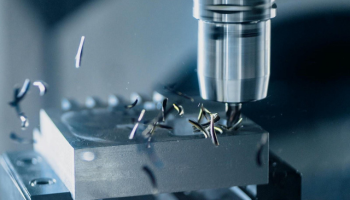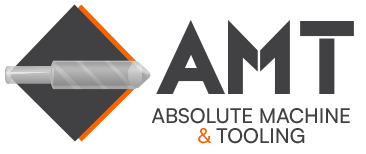In-House vs. Outsourced CNC Machining: 5 Things to Consider
Should you do your CNC Machining in-house, or trust a professional? Weigh your needs in terms of maintenance, expertise, capacity, technology, and costs.

One of the biggest challenges you'll face in business is whether to upskill your team and use the available resources or when it's time to enlist the services and know-how of professional CNC shops. While there is no one-size-fits-all response to that question, there are some things to consider when making an informed choice.
Here are the top five things to ask yourself (and your team!) before you decide to work on your next project completely in-house or procure expert support.
What is My Upfront Investment and Maintenance?
Investing in CNC machinery for in-house work will demand a significant upfront capital investment. You must first purchase the machinery, of course, but keeping up with ongoing maintenance costs will also add up over time. The price tag of the equipment will depend entirely on the project at hand, but you must also think about the future. If you take this project, will others like it match your goals and your capacity?
It may be worth it to handle CNC machining services in-house if you get frequent enough work to make the proper facility and equipment worth it. If you lack the required equipment to take on your current (or future) projects, and can’t count on needing that equipment again anytime soon, it’s best to look at some outsourcing options.
Outsourcing to a CNC manufacturing shop significantly reduces upfront investment — and you’ll never have to worry about equipment maintenance or final product quality.
What are the Expertise and Skill Requirements for this Project?
Programming and operating CNC machines demands a specialized set of skills. In-house CNC machining could mean hiring or training skilled operators if you don't already have them on hand. You must decide with your team if the projects you are currently taking on will place a burden on your current workforce and expertise.
Outsourcing CNC services to a qualified machine shop can help you tackle projects outside of the expertise or comfort level of your employees and partners. By working together with the staff of the CNC machine shop, it’s also possible to learn more about what equipment, skills, or training would be needed to grow into those capabilities. In that respect, outsourcing can present an opportunity for learning and growth.
What is My Capacity, and How Scalable is it?
Deciding whether to handle a project in-house is not just about skills and equipment but the capacity of the overall facility and workload. If you tangibly know that a project has exceeded your workforce capacity by volume and not by technical requirements, it may be better to hire and train new professionals to take this on.
It's best first to do a cost-benefit analysis. If you have the time and resources to train new hires to tackle urgent projects, it may be worth it to expand your workforce and continue to handle the work in-house.
However, outsourcing CNC services to licensed professionals is both an immediate and long-term solution. They can offer you expertise, capabilities, and the capacity of a larger facility to take on profitable projects without the need to get new partners and new hires up to speed.
Have We Exceeded Our Technology Requirements?
Outsourced CNC machine shop services will often give you access to the latest solutions and tools in the business. A certified CNC partner can be counted on to keep up with best practices, training, and all technical requirements for delivering top-quality work on time, and profitably.
Lead times are not only about training but also about the raw technology available to your business. Even with a skilled in-house workforce, if you’re carrying legacy equipment that requires additional maintenance or only permits moderately-paced projects, it can make sense to re-evaluate the time it takes to deliver on your contracts. You may find that outsourcing can accelerate production vs. in-house work, keeping customers satisfied and enabling you to take on more business.
Investing in equipment and the latest technology is not always necessary, but it can also give you a competitive advantage in your bids and SLA. Compare the cost of technology upgrades with the urgency of current projects and your need for flexibility.
Are We Selecting the Most Cost-Effective Option?
Deciding between in-house vs outsourced CNC machining comes down to a simple cost-per-job comparison. However, examining how cost-effective a job is in the middle of the project makes it impossible to shift gears and make a more economical choice — and could even delay the project.
Take time in advance to carefully consider and compare the flexible cost of outsourced CNC machining versus in-house work. Outsourcing would eliminate the need for equipment upgrades, reduce labor costs, reduce the risk of downtime, and help with supplier and vendor management. It’s even possible that the best approach lies somewhere in between, outsourcing a portion of the project while focusing on other stages in-house.
If you find yourself in need of cutting-edge CNC services that can guarantee quality deliverables and compliance, explore expert CNC machine shops near you.
